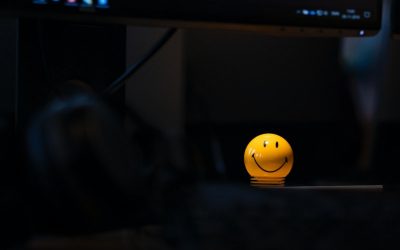Post-partum, or post natal, depression is a common condition generally affecting women who have recently given birth. It is not unusual for new mums to feel overwhelmed by the new demands being placed on them and the (exhausting) adjustment to having a new addition to the family. But research shows that dads can get post natal depression too.
Makes sense. The little bundle of joy is a massive adjustment for dad as well – he also loses sleep and has new demands placed on him. Paternal post natal depression is a real and serious condition.
The most common signs of post natal depression are a loss of pleasure, low mood, exhaustion, lack of motivation and energy, feeling isolated, lack of interest in the baby, excessive worry about hurting the baby, feeling guilty or worthless, reduced libido and sudden weight loss or weight gain.
While more severe forms of paternal post-partum depression require antidepressant treatment, there are many ways in which you can treat the condition through simple life-style changes.
Get in touch with joys of being a dad.
Try to remember the major reasons for deciding to have kids. Yes, you are being woken up in the middle of the night and the task of fathering a new baby seems daunting in the beginning, but there are many rewarding moments in parenting children. Take joy in your baby’s smile, enjoy holding your little one and dream about the future.
Connect with others.
You are certainly not alone and it often helps to chat with other parents going through similar experiences. Getting enough emotional support will ensure that you have enough emotional resources to deal with demands of being a father.
Get some sleep.
If baby is keeping you both up at night, consider taking turns for seeing to the little one while the other gets some rest. This is really important for both parents and playing tag with sleep is a great way of ensuring that you both get some needed rest.
Exercise.
This is a really important piece of advice. Exercise it the best therapy and, even though you may be feeling exhausted, a little gentle exercise will rejuvenate you and get the blood flowing. Perhaps you can go for a walk with the family, or maybe you just need some alone time in the gym – either way getting exercise will help treat your depression.
Ask for help.
Asking for help is not a weakness! If you have friends and family that are around and prepared to pitch in, go ahead and ask them. If you need professional help – go and get it.
Take some down time.
Make sure that you and your partner get some downtime. Looking after a baby is no easy task, neither is providing for a family. Make sure that you get some time away from it all to relax and re-group.
Essentially, adjusting to a new addition to the family and a change in relationship dynamics can be overwhelming for most people. Post-partum depression is an easily recognisable and easily treated condition that affects both men and women. Just because you are a dad, doesn’t mean you are immune. Make sure you keep an eye out for some of the symptoms and get some help if you need it.

